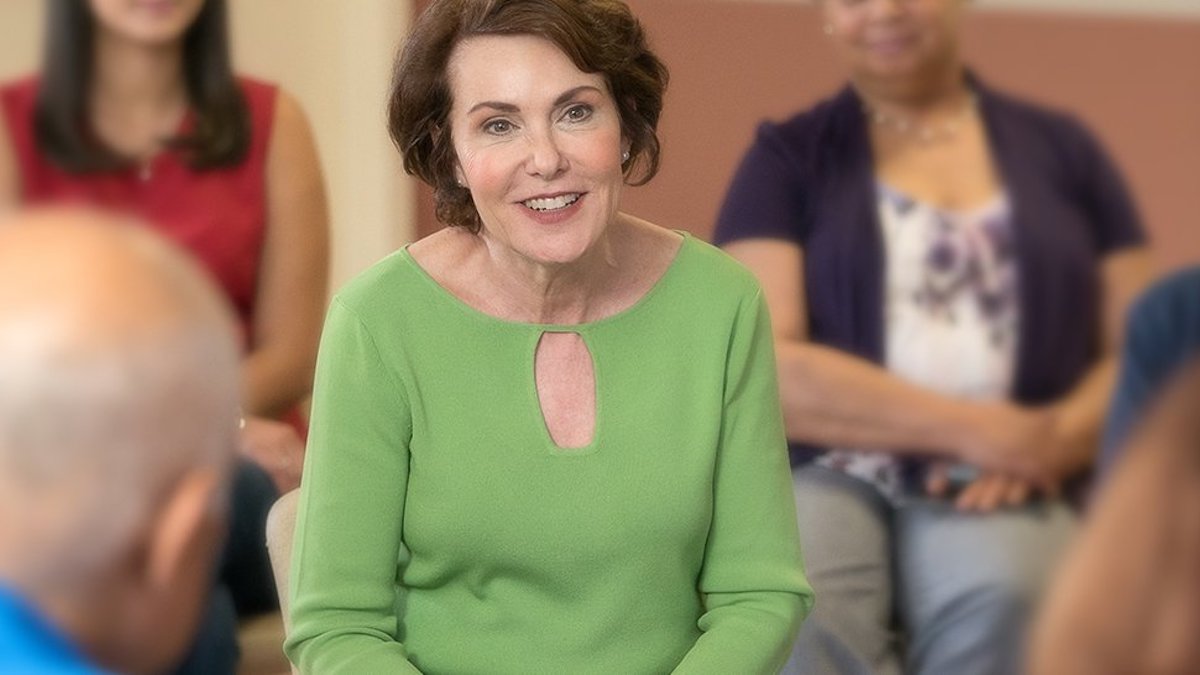Washington, D.C., Oct. 8 – RespectAbility, a nonprofit organization fighting stigmas and advancing opportunities for people with disabilities, has asked gubernatorial candidates on all sides of the aisle to fill out a questionnaire on disability issues.
Jacky Rosen is the current U.S. Representative for Nevada’s third district. She has served as representative since 2017. Rosen is also a member of the Assisting Caregivers Today Caucus, which pushes legislation aimed at supporting caregivers and informing members of Congress about the role of caregivers. She is challenging Senate incumbent Dean Heller in the 2018 midterm elections.
RespectAbility is nonpartisan and does not endorse candidates. The questionnaire is purely for educational purposes.
This is important for Nevada’s 382,000 citizens with disabilities. Only 42.6percent of the 193,100 working-age people with disabilities in Nevada are employed. Further, there are more than 56,800 youth with disabilities and each year a quarter of them will age out of school into an uncertain future.
According to a recent survey, 74 percent of likely voters have a disability themselves or have a family member or a close friend with disabilities. The upcoming elections and their results will have an impact on people with disabilities, so it is important to become familiar with the candidates’ thoughts on certain issues.
“Candidates for office ignore the disability community at their peril,” said former U.S. Representative and Dallas Mayor Steve Bartlett. Bartlett, who was a primary author of the Americans With Disabilities Act of 1990, is the chairman of RespectAbility.
Rep. Jacky Rosen’s opponent, incumbent Sen. Dean Heller, later responded to the questionnaire. View his responses on The RespectAbility Report.
We are presenting Rosen’s answers in full below.
 Question 1: What policies and actions do you support to reduce the stigmas of people with disabilities that are barriers to employment, independence and equality?
Question 1: What policies and actions do you support to reduce the stigmas of people with disabilities that are barriers to employment, independence and equality?
Answer: I believe the American Disabilities Act was a critical piece of legislation and we must continue to uphold it and ensure that people with disabilities always have a seat at the table and that their concerns and problems are heard and taken seriously. That is why I voted against the so-called ADA Education and Reform Act (H.R. 620), which would have barred lawsuits under the Americans with Disabilities Act (ADA) until a business in violation of the ADA had gone 120 days without “curing” any non-compliant structures, removing the economic incentive to comply with the ADA until caught in violation of the law. I also introduced the Sunlight in Workplace Harassment Act (H.R. 5028), which requires public companies to disclose payments of settlements for harassment and discrimination, including that based on disability status.
Question 2: What is your record on improving the lives of people with disabilities, specifically in enabling people with disabilities to have jobs, careers or start their own businesses?
Answer: I am a proud co-sponsor of several pieces of legislation to help improve the lives of people with disabilities, enabling them to have full access to quality education and find good-paying jobs. I have backed the Access to Technology Affordability Act (H.R. 1734), which would provide a refundable tax credit to blind taxpayers, their spouse, or dependents to purchase technology that converts or adapts visually-represented information into forms usable by blind individuals. I am also a co-sponsor of the bipartisan Accessible Instructional Materials in Higher Education Act (H.R. 1772), which would establish an independent commission to develop disability accessibility guidelines for electronic instructional materials used at colleges and universities. I am a co-sponsor of the Steve Gleason Enduring Voice Act (H.R. 2465), which would ensure continued Medicare coverage for speech-generating devices for individuals with ALS.
Question 3: Do you have specific strategies for youth employment for people with disabilities? For example, what are your thoughts on apprenticeships for youth with disabilities?
Answer: I believe all young people, including those with disabilities can benefit greatly from participating in an apprenticeship. Access to on the job training is critical towards personal and professional development and I completely support apprenticeships for youth with disabilities.
Question 4: The jobs of the future will largely require post-secondary education. However, on average only 65 percent of students with disabilities complete high school and only seven percent complete college. What policies do you support to enable students with disabilities, including those from historically marginalized communities and backgrounds, to receive the diagnosis, Individualized Education Plan (IEP) or 504 plan and accommodations/services they need to succeed in school and be prepared for competitive employment?
Answer: Access to affordable quality education is critical for our nation’s students. We must do more to ensure that individuals with disabilities have access to the schooling, training and resources they need to be successful and that they have equal access to all opportunities. That is why I am a cosponsor of the bipartisan IDEA Full Funding Act (H.R. 2902), which would require regular increases in Individuals with Disabilities Education Act (IDEA) funding over the next ten years, ultimately leading to full federal funding.
Question 5: Today there are more than 750,000 people with disabilities behind bars in our nation. Most of them are functionally illiterate and 95 percent of them will eventually be released. What are your views to ensure that individuals with disabilities who are incarcerated gain the skills and mental health supports that will enable them to be successful when they leave incarceration?
Answer: I think it’s incredibly important that we take steps to make sure everyone who is incarcerated receives skills training and mental health support. This will reduce the rate of recidivism and gives individuals the best chance possible to thrive and contribute to our communities once they are released.
Question 6: People with disabilities are twice as likely to be victims of crime as those without disabilities. This includes the fact that both children and adults with disabilities are more likely to be victims of rape or sexual assault. They are also far more likely to suffer from police violence, partially because manifestations of disability can be misunderstood. How would you address these issues?
Answer: Incidents of sexual assault and police brutality are far too frequent in all parts of our society, but even more so for individuals with disabilities. These are sensitive conversations that we need to continue to have and to listen to victims and take proactive steps to make sure we are doing all we can to solve the problem. My bipartisan Sunlight in Workplace Harassment Act (H.R. 5028) would requires publicly-traded companies to disclose payments of settlements for sexual harassment, abuse, and discrimination, including that based on disability status.
Question 7: How would you ensure that people with disabilities have access to healthcare and the benefits they need while enabling them with opportunities to work to the best of their capacities without losing the supports they need to live?
Answer: I am committed to protecting Medicare and Medicaid. These vital programs provide health care to more than one million Nevadans, including individuals with disabilities, and I will continue to work to strengthen these programs. I am also a proud co-sponsor of H.R. 1171, the ALS Disability Insurance Act, which would provide individuals ALS faster access to Social Security Disability Insurance.
Question 8: What are your thoughts on ensuring that people with disabilities have the option to live in their homes instead of institutions and still have the community attendant supports they need to live?
Answer: I believe that individuals with disabilities should have the option to live wherever they choose, including in their homes, and still have the community attendant supports they need to live. We should be doing all we can to support and improve the lives of individuals with disabilities.
Question 9: How would you advance innovations (i.e., assistive technologies, devices) that can help people with disabilities become more successfully employed, productive and independent?
Answer: I have backed the Access to Technology Affordability Act (H.R. 1734), which would provide a refundable tax credit to blind taxpayers, their spouse, or dependents to purchase technology that converts or adapts visually-represented information into forms usable by blind individuals. I am also a co-sponsor of the bipartisan Accessible Instructional Materials in Higher Education Act (H.R. 1772), which would establish an independent commission to develop disability accessibility guidelines for electronic instructional materials used at colleges and universities. Finally, I am a co-sponsor of the Steve Gleason Enduring Voice Act (H.R. 2465), which would ensure continued Medicare coverage for speech generating devices for individuals with ALS.
Question 10: Are your office, website and events accessible to people with disabilities? If yes, please describe.
Answer: All my offices are ADA accessible. Signage outside of my DC office that lists my name is in braille.
RespectAbility has asked all the candidates for governor on both sides of the aisle to complete the same questionnaire. We will share responses from additional campaigns as we receive them.
The RespectAbility Report is a nonpartisan political commentary on U.S. elections with a focus on disability issues. The RespectAbility Report first posed this down ballot questionnaire to candidates in 2016 while covering all of the 2016 Democratic and Republican candidates for president. Coverage of this and related issues can be found at http://therespectabilityreport.org/.
The RespectAbility Report is nonpartisan and does not endorse candidates.

[…] Jacky Rosen: therespectabilityreport.org/2018/10/08/jacky-rosen […]